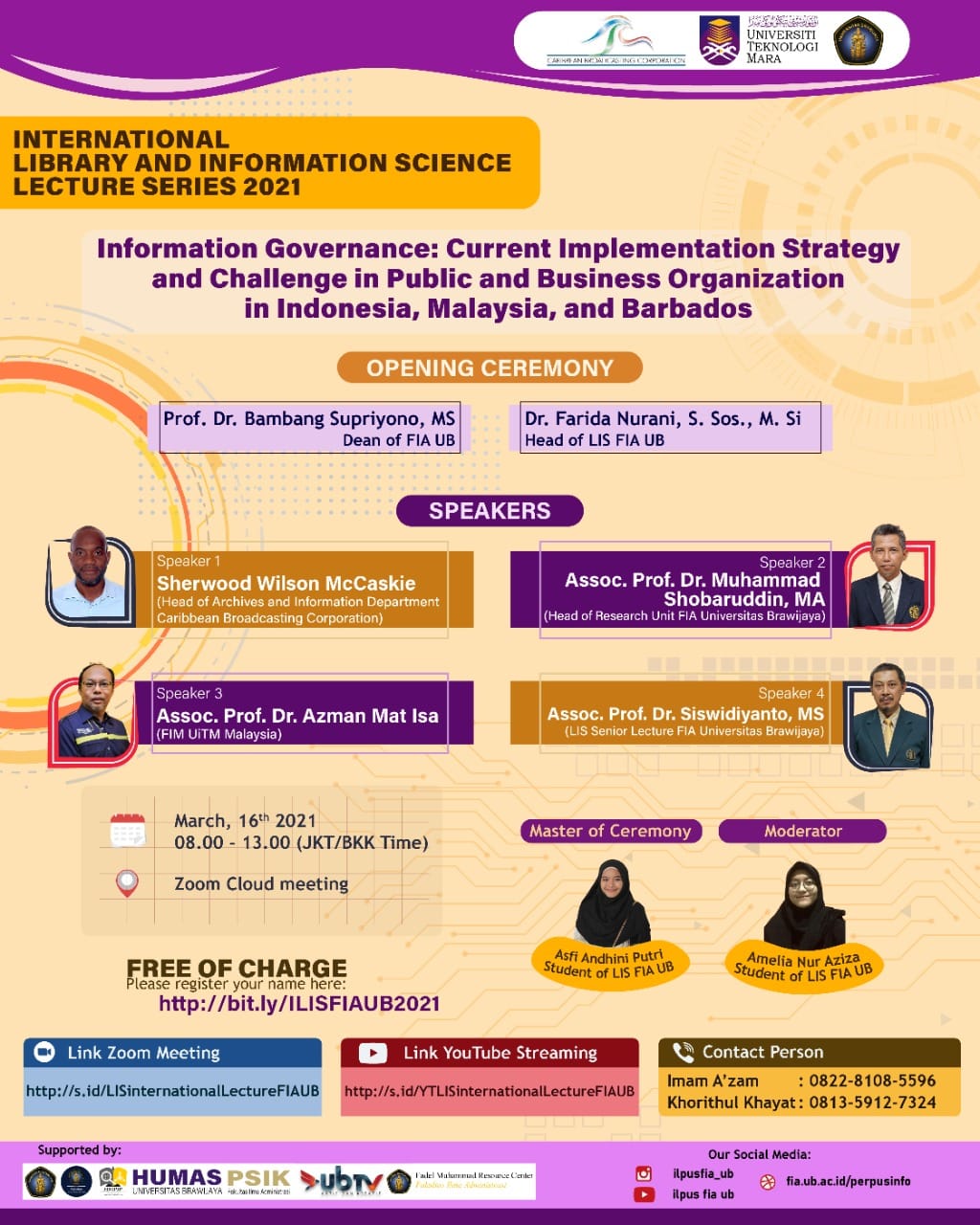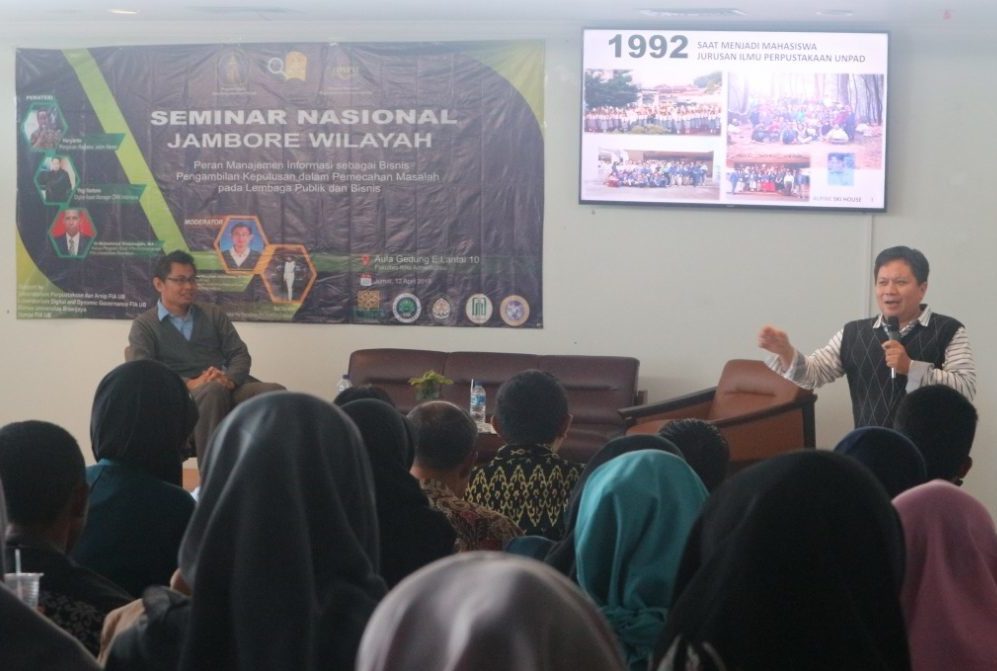The Library Science Study Program of FIA UB Invites Three Countries to Strengthen the Information Governance
 The Library Science Study Program of FIA UB again invites professors and professionals from abroad to collaborate and strengthen the study of information governance. This activity was packaged in International Library and Information Science Lecture Series 2021 which was held on Tuesday (16/3/2021). This online activity was attended by 320 participants, including students, academics, and practitioners from various countries such as Indonesia, Malaysia, the Philippines, Barbados and several other countries.
The Library Science Study Program of FIA UB again invites professors and professionals from abroad to collaborate and strengthen the study of information governance. This activity was packaged in International Library and Information Science Lecture Series 2021 which was held on Tuesday (16/3/2021). This online activity was attended by 320 participants, including students, academics, and practitioners from various countries such as Indonesia, Malaysia, the Philippines, Barbados and several other countries.
The activity, which took the theme Information Governance: Current Implementation Strategy and Challenge in Public and Business Organizations in Indonesia, Malaysia, and Barbados, presented four speakers from three countries, namely Sherwood Wilson McCaskie who is the Head of Archives and Information Department of the Caribbean Broadcasting Corporation, Assoc., Prof. Dr. Muhammad Shobaruddin, MA who is the Head of Research Division of FIA UB, another foreign speaker is Assoc. Prof. Dr. Azman Mat Isa from the Faculty of Information Management UiTM Malaysia, and Assoc. Prof. Dr. Siswidiyanto, MS. who is a senior lecturer in the Library Science Study Program of FIA UB. Sherwood Wilson McCaskie presented material on the Challenges and Opportunities of Information Governance in Business Organizations in the 21st Century.
He explained that information governance can be defined in various ways, but it can refer to a strategic framework for managing information in business organizations. The term of information governance basically requires strong attention from leaders and special recruits such as documentalists, record managers, archivists and librarians. In his presentation, Sherwood explained three important concepts in information governance, which are policies and strategies; framework; and operational models.

Sherwood Wilson McCaskie
The second speaker was Assoc. Prof. Dr. Muhammad Shobaruddin, MA, who reviewed information governance in public organizations that are accommodated in efforts to manage websites and information in local governments. He explained two important points, namely the involvement of interactions between structures, processes and traditions that emphasize how governance in the regions is run; and Websites and Information which are integrated and have a strong influence on local government organizations.
Through these two important points, he emphasized the relevance in the context of Public Administration that the complexity of an organization is growing, as well as challenges and technologies that continue to develop are the main reasons for the government to depend on other actors to provide optimal services through good information governance such as managers. Records, archivists or information and documentation managers that have not been optimized so far.
Continues on the third material presented by Assoc. Prof. Dr. Azman regarding international standards (ISO) of information governance and organizational culture. He explained that information governance is highly depend on organizational culture. Indeed, information governance is a series of processes, roles, policies, standards and measures that together ensure the value for information use efficiently and in accordance with the needs of the organization. He added that besides referring to the organizational culture, the existence of information governance is also influenced by digital transformation which is very fast and requires a good understanding so that all parties involved are able to take optimal benefits.
The last speaker was Assoc. Prof. Dr. Siswidiyanto, MS discussed the challenges of information governance through information system management in the public sector. In the presentation, he related that the existence of information system management in the public sector must continue to be improved, especially in government organizations as an embodiment of public service. He also explained that Management Information Systems in the public sector are devoted to the management of public services such as the disclosure of public information regarding corruption prevention, budget transparency, disaster response and mitigation processes.[Humas UB/ Trans. Iir]






